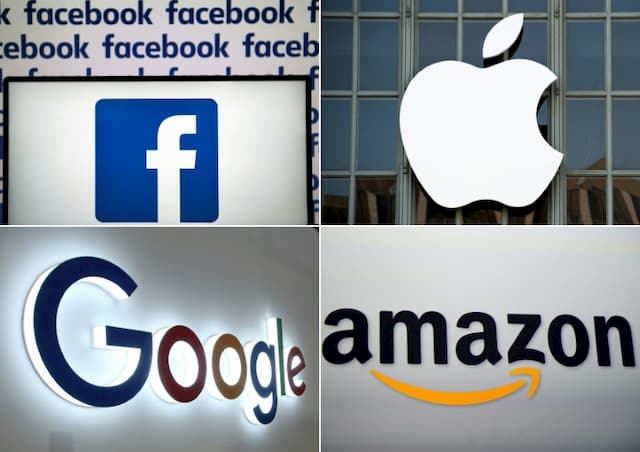GAFA Tax “à la Française” in the Process of Being Adopted, the United States Launch an Investigation

The “GAFA” tax, on the digital giants, must be definitively adopted by Parliament. At the same time, the United States is launching an investigation into the effects of this tax.
The Parliament should adopt definitively Thursday 11th July 2019, for a final Senate vote for right-wing majority, the introduction of a tax on “Gafa”, making France one of the first countries to impose the turnover digital giants.
It should apply to about thirty digital internet groups including Google, Amazon, Facebook and Apple (Gafa) and Meetic, Airbnb, Instagram or French Criteo, and bring 400 million euros in 2019, then 650 million in 2020.
A survey of the United States
Voted at first reading in the spring in both chambers in different versions, the text had been the subject of a compromise joint committee (CMP) approved by the National Assembly on 4 July.
The bill carried by the Minister of Economy Bruno Le Maire makes France one of the pioneers in this area. It aims to tax digital activities that “create value through French Internet users”.
But this unilateral solution is intended to be only temporary, pending the outcome of international negotiations. Meanwhile, the United States announced Wednesday it has launched an investigation into the effects of the tax.
Washington launches investigation into French digital giants bill #AFP #GAFA
– Jérôme Cartillier (@jcartillier) July 10, 2019
The investigation – opened under the article of the law of the trade known as “Section 301” – could, according to the conclusions which it leads, to involve measures of reprisal American.
The G20 Finance meeting in early June in Japan has made progress on this issue: the money of the major economies of the planet have promised to “redouble efforts” to “put tax justice on the international stage”, according to the comments of Bruno the Mayor.
The goal is to reach a final agreement by 2020, a move made possible by the change in the United States’ stance, which has been stalling negotiations for years. Divergences remain, however, significant on the means of application, Washington favouring a very broad approach not limited to the digital sector.
The “French Gafa tax” is largely inspired by a European project that did not succeed because of the reluctance of Ireland, Sweden, Denmark and Finland.
In concrete terms, it targets companies that generate revenues of over € 750 million in their digital businesses worldwide, of which € 25 million may be linked to users located in France.
“A palliative”
The idea is to impose 3% of the turnover achieved in France including targeted online advertising, the sale of data for advertising purposes and the linking of Internet users by the platforms.
At first reading, the Senate had written in the text the “temporary” nature of the tax, providing for its extinction on 1 January 2022. This mention was deleted in the CMP. But the tax has a good vocation to be withdrawn as soon as there will be a global agreement, assured the minister, and an annual report is planned on the evolution of the international negotiations.
Several other provisions adopted by the Senate at first reading have been retained in the text, in particular, to legally secure the device.
The article to oblige the government to give Parliament the reasons for its refusal to notify the tax to the European Commission as State aid was thus maintained.
According to the Senate Finance Committee:
“Imperfect economically, since it taxes the turnover and not the profits, and complex in its implementation on several aspects, this new tax must be seen as a palliative, pending a multilateral decision.”
For the left, the tax goes in the right direction but remains very insufficient.
The tax, whose introduction was announced by Emmanuel Macron at the end of 2018, in the middle of the “yellow vests” crisis, must help finance the 10 billion euros of economic and social emergency measures that were then put on the market. table.
Same objective for the second part of the bill that affects the trajectory of corporate tax cuts for 2019 for large corporations. The right sees there, like Eric Woerth, president LR of the Finance Committee of the Assembly, “a blow of claw to the competitiveness of the companies”.
Enjoyed this? Get the week’s top France stories
One email every Sunday. Unsubscribe anytime.


